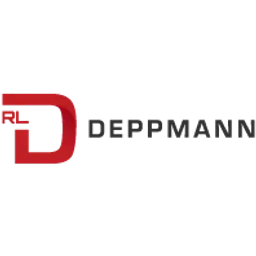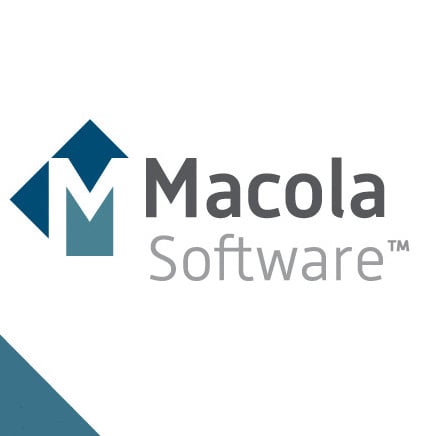Incorporating manual processes like materials requirement planning, manufacturing execution, and even sales forecasting in a manufacturer's software ecosystem can give management better insight into cost and purchasing decisions, and lead to better pricing guidance for the salesforce.
ERP Advisors Group can give your company a solid business case on the benefits and costs of upgrading to a more robust and modern ERP that will provide a platform for future growth.
ERP Advisors Group provides expert ERP guidance and tailored solutions for discrete manufacturers, process manufacturers, and everyone in between, ensuring technology investments support unique business objectives and drive results.

Trusted by


.png)







ERP Advisors Group will help your Manufacturing business define requirements, set your software strategy, provide a software selection roadmap, conduct a diligent vendor selection process, and manage the entire implementation.
We will define your needs and wants as well as how you would ideally use new automated solutions across your entire Company.
We will guide you through selecting the best fit, and most cost-effective business applications, and implementation partners.
After finalizing your software and services contracts, EAG stays with you to oversee your implementation until you successfully go live. We will oversee integrations, data migration, change management, budgets, design and configuration, walkthroughs, training, testing, and go-live cutover and will provide executive and project sponsor support throughout the duration of your project.
Surveys across all of our manufacturing clients reveal the most common reasons why they need new ERP to automate their business:
Early in the process we wanted to be confident that we were selecting the right system and make sure that we were well-informed and that we’d take a look at all of the different options on the market. And from start to finish, I would say that was the biggest contribution from ERP Advisors Group. They really have that whole process dialed in.
Brandon McNeil
Vice President, Lightning eMotors

We are 100% independent ERP consultants, and we never take commissions or payments from any vendors. Combining our objectivity with our white-glove selection process, you will be absolutely certain that you are selecting the right software and implementation resources.
"I would have no issue recommending ERP Advisors Group. I have already even mentioned EAG to some colleagues. I am more than happy to share my experiences. We have had a very good experience all the way around." - Bryan Leo, COO, BDC Laboratories
Our rapidly-growing mid-market clients are already very busy with their day jobs and do not have time to become ERP experts. Though your key people still have to devote some time to an ERP initiative, hiring an ERP consultant frees them up to focus on the important ERP decisions while keeping the focus on their day job.
The more complex your business, the more likely for difficulty when selecting and implementing software. ERP Advisors Group will help you uncover your true needs and will only vet the most viable options for your size, requirements, resources, and strategy.
We will create your requirements document and demonstration script with industry-standard best practices in mind while retaining what is unique to your company, leaving out the manual workarounds.
Many clients hire us when they suspect there will be a business case for new software, especially in a manufacturing company on legacy applications. ERP Advisors Group helps stakeholders buy into what is best for the company by getting their input at multiple stages including the Needs Analysis, Selection, and Implementation.
A frequent complaint we hear from prospects who tried to select software on their own is feeling confused about the software's capabilities. We have vendors show your requirements during their product demonstrations. This ensures you feel confident about selecting the best products to meet your needs.
We negotiate tens of millions of dollars of deals every year for our clients. We provide contract reviews on all terms and conditions, including software, services, and every agreement embedded throughout the contract. Our clients receive price protection for many years to come on their purchases. While we don't guarantee it in writing, we normally save our fees on this step alone. Check out our Guide to Contract Negotiations.
Podcast
Resources



"What ERP Advisors Group did for us was fill those gaps and allowed us to really focus on what we were good at internally and all in all it turned out really well. I think it was a great partnership and we successfully implemented an ERP solution that is really providing benefits for the company." - Chris Carpenter, Director of IT
ERP Advisors Group's Needs Analysis will uncover the benefits your company would realize with an ERP software upgrade. Some of the most common benefits of a new Manufacturing ERP include:
When you contact ERP Advisors Group for a consultation, you will be greeted by an experienced member of the team who understands the reasons why CFOs, Controllers, and Directors of IT are considering new software. You will NOT be meeting with an entry-level salesperson.
Your complimentary consultation can provide you with guidance that you cannot find just by searching the internet.

We heard about ERP Advisors Group from one of our trusted company advisors. Going through an ERP implementation it can be transformative for your business, but it can also have a lot of potential pitfalls. Getting help from a company like ERP Advisors Group is really important to the success of your project.
Craig Jack
Executive VP, The Kong Company
Here are answers to some of the most commonly asked questions we get from manufacturers.
The answer depends on your business’s needs. Each business is unique and is going to look for different things from their ERP. You could be a discrete manufacturer whose needs are different than those of a batch manufacturer, or you could have regulatory requirements in a highly regulated industry like medical devices or food, which other companies do not need to worry about.
Aside from core functionality requirements, you may offer adjacent services that require you to explore software platforms and the ecosystems that surround them. You may need a field services solution or an e-commerce tool, forcing you to look outside the box of core manufacturing execution-oriented applications.
Or you may have preferences when it comes to user experience or how the system looks and feels. These are all factors that contribute to what the “best” ERP manufacturing means to you.
An implementation can take anywhere from six months for a smaller business with a limited scope of work to well over a year for larger initiatives. For the more complex implementations, the process can take even longer. Additionally, obstacles, such as data readiness or project team turnover (implementor and/or client), can cause further delays. Be sure to talk to the experts and consult with your implementation partner for a clear timeline.
There are industry-specific solutions that have manufacturing capabilities built directly into the platform, but many other ERPs are accounting solutions first, with manufacturing tacked on later. These structures do not make one solution better than another; they simply help the solution meet the needs of different businesses. Don’t dismiss a solution just because it is not the “industry standard”.
Manufacturers have very specialized functionality requirements that need to be met by their ERP. In the fast-paced world of manufacturing, businesses must be able to meet rigid requirements while also adapting to evolving circumstances.
For instance, Inventory and Supply Chain Management are essential manufacturing needs. Manufacturers need to track their inventory in real-time to manage levels and meet fluctuating demands, without over- or under-stocking. Within inventory, manufacturers must carefully manage their supply chain to prepare for disruptions or confront potential recalls. Additionally, manufacturers need a way to manage quality and meet compliance requirements, regardless of their micro-vertical.
More than ever before, manufacturers need an ERP that can scale. Not just as their orders increase, but as their business expands into different products or services. Many modern businesses expand into adjacent fields, which requires software with even more flexibility than a manufacturing-centric business.
These are only the basic manufacturing requirements every company should demand; however, there are many other capabilities manufacturers may desire. They may need shop floor management, material requirements planning, a manufacturing execution system, production scheduling, or even project management. This is why we encourage everyone to thoroughly understand their needs before selecting software.
The software market is not lacking for manufacturing solutions. Businesses can usually find exactly what they need for their growing businesses, but every model is unique and may require extra configuration if there is no out-of-the-box solution for your particular micro vertical.
Most businesses will enter an ERP selection thinking they need an all-in-one solution, but this may miss the mark for specialized manufacturers. All-in-one solutions can get extremely expensive and provide almost never-ending capabilities. Maybe even too many capabilities. Paying for a bunch of functionalities you don’t need is not ideal for businesses with tight margins looking to reduce costs.
Then, there are best-of-breed models, providing businesses with an array of solutions that come together to operate different facets of the business. While this may help meet unique business needs, it can create data silos that are difficult to condense and analyze.
Finally, businesses can look to develop a hybrid model. This means selecting an ERP to run portions of the business, such as accounting and human resources, while selecting other bolt-on solutions to run more specific operations, such as warehouse or shop floor management. This model is the most conducive to growth and flexibility if it is executed properly. By building the right integrations and selecting the right solutions, manufacturers can realize progressive value with a more cost-effective model.
From an advisory perspective, so long as you have a solid, core accounting solution, you can go ahead and implement just a manufacturing solution. However, we highly recommend having a clear technology strategy to drive all future growth. Implementing a manufacturing solution without a solid ERP means part of the business will still be behind. And, in terms of data, you won’t be able to truly realize the value of a modern solution.
ERP and MES vary in their purpose. ERP helps house, track, and analyze operations across the entire business, in every department, directly impacting the General Ledger with inventory purchasing, COGS, and revenue. Alternatively, MES is more system-focused and pertains to managing machines and operations contained on the factory floor. Each solution has its own purpose and can benefit manufacturers; it is simply a matter of whether your business is at a point where it could benefit from MES, ERP, or both.
ERP Advisors Group will help you not only define your manufacturing requirements but more importantly, we will bake in the best practices for your mode of manufacturing into your Request for Information and Demonstration Script.
We conduct dozens of selections every year, equating to tens of millions of dollars in software and services sales. With our deep knowledge of mid-market manufacturing ERP, we will help you find the right manufacturing ERP for your company, AND the right professional services company to implement it.
We regularly vet the top, most viable manufacturer ERP systems.
Colorado
390 Union Boulevard, Suite 540
Lakewood, CO 80228
866-499-8550
303-350-3087
info@erpadvisorsgroup.com
Florida
600 Cleveland Street, Suite 379
Clearwater FL 33755
866-499-8550
info@erpadvisorsgroup.com
Terms & Conditions | Privacy
© 2025 ERP Advisors Group